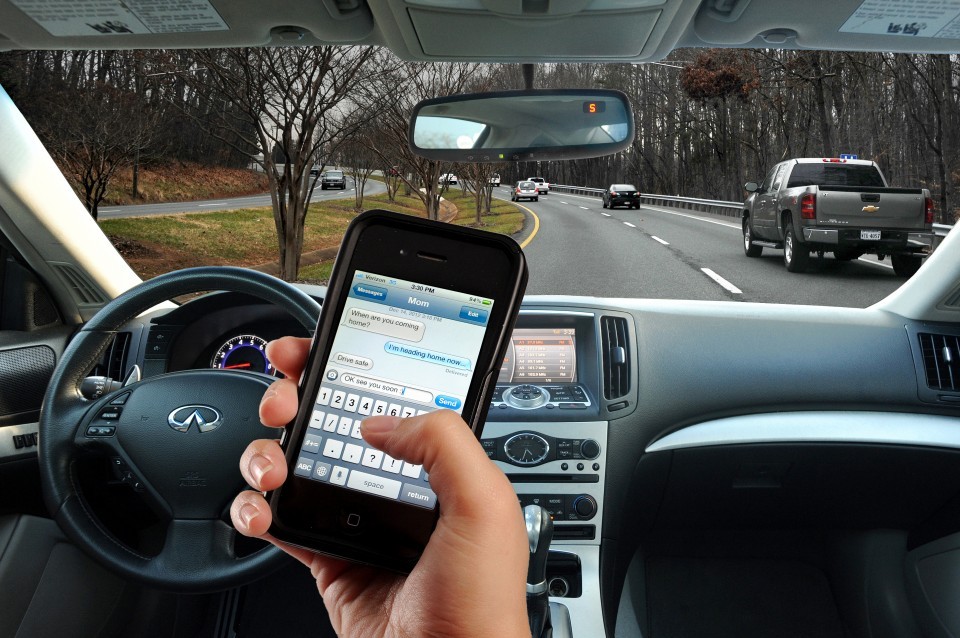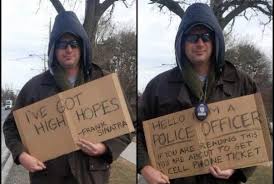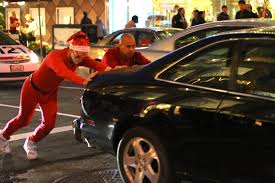
Technology is an amazing thing. There have been advances that allow us to now do things that were unimaginable 25 years ago. We store our photos and important documents in a place called the Cloud, which many people think is a real place in the sky. Our phone calls and communications are now sent over an invisible wireless system that years ago would have been the stuff of science fiction.
If you think that you’ve seen it all, then you’re in for another technology first- the self driving beer truck. Now I know that for a lot of people this would be a perfect match but if you’re picturing yourself going along in your pickup, sipping on a cold one with no risk of a DUI, I hate to ruin the dream.
The reality is that Anheuser-Busch joined with Uber’s new freight division and the transportation company, Otto, to test a new retro-fit technology that turns a regular semi truck into a self-driving vehicle. The mission was to drive 51,744 cans of Budweiser from Fort Collins, through downtown Denver, to Colorado Springs, Colorado.
Cameras, radar and sensors were mounted on the truck to “see” the road. The Otto technology system controlled the acceleration, braking, and steering of the truck from exit-to-exit without any human intervention. For safety’s sake, a driver was in the truck during the 120 mile drive but monitored the trip from the sleeper compartment in the back.
With this successful test of the self-driving technology, Otto feels that this will be the beginning of a safer and less tiring way for truck drivers to travel. It is their belief that this can help reduce collisions, incidents of aggressive driving and improve fuel efficiency. While this will give drivers a break on interstate runs, they will still need to drive in congested areas.
To mark the occasion, Anheuser-Busch created a special set of Budweiser cans with the Otto logo above the slogan, “First Delivery by Self-Driving Truck”. Brendan Spaar wonders how soon it will be before these show up on eBay.

We’ve all seen the public service messages about the dangers of texting and driving. Statistics show that distracted drivers are the cause of an alarming amount of crashes each year. In most states it is equal to driving while under the influence of alcohol. Still, despite the warnings, people continue to use their phones to text while driving.
This might be changing if technology being proposed for testing in New York is successful. Two lawmakers, New York Senator Terrence Murphy and Assembly Assistant Speaker Felix Ortiz, have joined with the advocacy group, Distracted Operators Risk Casualties, to draft legislation that would allow authorities to examine phones at accident sites to determine if a driver involved in a crash was texting while driving.
Ben Lieberman, co-founder of DORC, has a personal interest in eliminating driver distractions. In 2011, his son, Evan, was killed by a distracted driver in New York. There is strong evidence that shows the growing danger that texting while driving poses. The National Safety Council reports that nearly 330,000 injuries occur each year from accidents caused by texting while driving. A survey conducted by the Department of Transportation found that 1/3 of drivers surveyed admitted to texting while driving.
Police may soon have a weapon to help them determine if a driver has been texting while behind the wheel. An Israeli technology company, Cellebrite, has been working to develop a technology that will help police tell if your device has been used for texting. If the company name sounds familiar it’s because this company was the one that is rumored to have helped the FBI crack the iPhone encryption on the San Bernardino terrorist’s phone. It is reported that the company is developing technology that will allow police the ability to examine the use of your phone while still keeping your content such as conversations, contacts, photos, private.
Texting while driving is a growing problem that needs to be addressed. Is this technology the answer? Brendan Spaar wonders if it is being reactive more than proactive. In 2014, Samsung developed an app called Eyes On the Road that was tested in Singapore. The app used your phone’s sensor fusion technology and GSM cell towers to measure your speed to determine if you’re driving. If you are, it hides phone calls, SMS text messages, and social media alerts until you reach your destination. There are other apps available that will allow you to drive safely without being distracted by texts or other alerts. This seems to be a possible solution that will help prevent possible distractions before damage is done. Another incentive might be joining with auto insurers to offer discounts to encourage drivers to be text free while driving.
So before you get behind the wheel, remember- texting while driving can send you a message you can’t ignore. Don’t let your last words be the ones you regret the most.

What do felons at the Eastern New York Correctional Facility and students at Harvard have in common? “Not much”, would probably be your first response. After all, Harvard is known for its high quality education and prestigious graduates that leave that institution destined for success. The people that leave the correctional facility don’t usually have the same advantage. But all that is changing thanks to programs like the Bard College Initiative.
People with criminal convictions have long been viewed by many as undeserving of being treated as we would any other person. It’s as if the label of “felon” strips them of their abilities to think, work or feel as anyone else can. There are few opportunities to show society that beneath the label is someone who might surprise you with what they can achieve if given the chance.
Recently, members of the Harvard Debate Team found out that their opponents were more than they bargained for. The Bard College inmate debaters took up the challenge of debating the Harvard undergraduates who happened to be this year’s national debate champions. You might expect it to be a struggle but what might surprise you is who emerged as the winner.
First there was the unlikely setting for the debate- a maximum-security prison where inmates can take courses taught by the faculty from nearby Bard College. Inmates at the facility have formed a debate club that helps teach them to argue constructively and to use words to win, both things that they might not have been accustomed to in their pre-incarceration lives.
Another surprise was the dedication of the Bard debaters. There are usually 15-20 students attending weekly two hour practice/ strategy meetings. Each participant has to be enrolled in debate while also carrying the load of their regular classes. Outside of their normal practice times, they talk debate in their cells, the prison yard and the mess hall. They practice their debating skills with other Bard students who are not on the debate team, and talk with their families. These become their extended coaches and give them the chance to perfect the arguments that will be used against their opponents.
The Harvard team wasn’t the first to go up against the prison debaters. The prison team has overcome the odds, beating teams from the US military academy at West Point and the University of Vermont. After losing a rematch to West Point in April, the debate competition against West Point has become an annual event, with the prison team training hard to win the next match up in the spring.
On September 18, 2015, the Bard inmates faced off against Harvard at the prison. The inmates were asked to argue that public schools should be allowed to deny enrollment to undocumented students. Their position was harder to argue due to the fact that the team opposed this position.
A veteran panel of debate judges ,Mary Nugent of Rutgers, Steven Penner of Hobart & William Smith and Lindsay Bing of Cornell, oversaw the debate and declared the winners. The judges believed that the Bard team effectively made the case that the schools which serve undocumented children often underperformed. The debaters argued that if these so-called “drop out factories” refuse to enroll the undocumented children, then nonprofits and wealthier schools could step in, offering the students better educations. One of the judges was quoted as saying that Harvard’s debaters did not respond to all aspects of the argument.
On its Facebook page, the Harvard team commended the prison team for its achievements and complimented the work done by the Bard initiative. “There are few teams we are prouder of having lost a debate to than the phenomenally intelligent and articulate team we faced this weekend, and we are incredibly thankful to Bard and the Eastern New York Correctional Facility for the work they do and for organizing this event,” the debate team posted after their loss.
The Bard program is funded through private donors and offers more than 60 academic classes each semester in its satellite campuses located at six medium- and maximum-security prisons in New York State. Inmates with a high school degree or GED apply for the program which requires written essays and a personal interview. The program‘s goal is to provide inmates with a liberal arts education so that when the students leave prison they are able to find meaningful jobs.
What is most important about the Bard program and the story of this debate is that it shows felon is a label that doesn’t always define who a person is or what their potential might be. By being judged strictly on their abilities, without bias or sympathy, the Bard debaters have proven that they can compete with others if given the opportunity. Unfortunately, society in general has not shown itself ready to give most felons that opportunity.
Housing and employment options are limited due to the overwhelming use of background restrictions against anyone with a conviction. While the courts might impose a certain amount of time for a person’s conviction, society has imposed a life sentence in most cases. With over 2 million individuals currently in jails or prisons, and over half a million prisoners released each year, the need for more programs like the Bard College Initiative will continue to grow.
The Bard debaters are not alone in being able to meet the challenge and excel against equally qualified individuals. It is reported that there are over 60 million Americans that have a conviction in their background. Brendan Spaar is involved in Georgia criminal justice reform and hopes that the success of the Bard debaters will encourage society to give another chance to people wanting to regain a productive life.

Almost everyone has had this experience; you’re minding your own business and get a text or email from someone that can’t wait to share their pictures of what they’re eating. Is it supposed to make us envious that the other person is enjoying something that we can only drool about? Some of the pictures are funny while others are just a way of sharing an experience with others not lucky enough to be there for the real thing.
It’s almost impossible to go on Instagram without seeing thousands of pictures of food. The phenomenon even has a name- “food porn or “food boasting”. You may wonder if the people ever have time to eat the meals they capture with their cameras. It might be time to put down the camera and pick up the fork instead.
Brendan Spaar has been on the sending and receiving end of some great food pictures. A favorite one was taken at a small out of the way BBQ place in Alaska. The surprise of finding great BBQ in Alaska was definitely a “must share” moment. The owners of the BBQ joint were only too happy to have word of their business shared with the rest of the world. Unfortunately, not everywhere is this the case.
Sharing your food with someone might be allowed at some restaurants in Germany but sharing photos of that food could be expensive. Diners in Germany have learned that if you take a picture of a dish in a restaurant without prior permission, you might be violating a chef’s copyright for their creation and can be liable to pay a hefty fine.
Chefs have long been portrayed as being possessive about their “secret” recipes for many of their dishes. Now it seems to have gone a bit past just being annoyed. As of 2013, German law now includes “applied arts” in the list of things protected by their copyright laws. It is now easier for chefs to sue anyone who posts a picture of their food without permission.
The essence of the ruling is, “In individual cases, shared pictures may be illegal. At worst, a copyright warning notice might come fluttering to the social media user. For carefully-arranged food in a famous restaurant, the cook is regarded as the creator of a work. Before it can be made public on Facebook & Co., permission must first be asked of the master chef.”
The law appears to be designed to protect the “masterpiece” creative creations that some chefs take their time creating as signature dishes. However, it doesn’t rule out food from any other type establishment. Unless you have permission to capture the food moment with a camera, it can wind up costing you much more than the price of the meal.
There haven’t been any reported cases of chefs filing suit over pictures yet. So if a visit to Germany is on your Bucket List, don’t forget that a picture may be worth a thousand words but is it worth a fine? Before you decide to snap that picture of the delicious bratwurst you’ve ordered while enjoying Oktoberfest, remember Brendan Spaar’s advice and ask permission.
 Have you ever been driving along & come to an intersection where someone is standing by the road holding a cardboard sign? Some claim to be homeless wanting help or needing money for gas or food. There have even been people claiming to be disabled or pregnant in an attempt to touch the hearts & wallets of drivers going by. Brendan Spaar has seen this many times while driving in Forsyth County & on his way into Atlanta , Georgia.
Have you ever been driving along & come to an intersection where someone is standing by the road holding a cardboard sign? Some claim to be homeless wanting help or needing money for gas or food. There have even been people claiming to be disabled or pregnant in an attempt to touch the hearts & wallets of drivers going by. Brendan Spaar has seen this many times while driving in Forsyth County & on his way into Atlanta , Georgia.
The “ roadside entrepreneurs” are making a business of collecting money from the sympathetic drivers stopped for a light. There’s even an online site that tells you how to effectively panhandle. If you go to http://www.wikihow.com/Panhandle you can easily learn how to make your career as a successful “down and outer”. It has been reported that some of these people can make thousands of dollars with a piece of cardboard & a convincing story. They rarely get arrested & the income they make can make it profitable.
Most people are in a hurry once they get behind the wheel. When stopped at a light they tend to ignore what goes on around them. Since people holding signs at traffic lights have become more common, they almost blend in with the surroundings. Drivers in some cities are finding that ignoring someone with a cardboard sign could be a costly mistake.
Some cities are having police officers pose as sign holders in an attempt to crack down on drivers that aren’t wearing seatbelts or are using their cell phones to illegally talk or text. One of the undercover sign holders is the San Bernardino, California police department. They recently set up on the side of an interstate off ramp wearing regular clothing & holding a sign that read, ‘I am not homeless. SB Police. Looking for seat belt / cell phone violations.’ As drivers exited the ramp they were ticketed if they were observed to be on their cell phones or not wearing their seatbelts.
The 4 hour stakeout was a success in the eyes of the police department. There were 50 vehicle stops which resulted in 33 drivers getting tickets for cell phone violations, 15 tickets for seat belt violations, & 5 cars were impounded due to drivers having suspended licenses or no license at all. While the sign holders weren’t looking for handouts, it did wind up costing the drivers with violations.
It doesn’t appear that this has been put to use by the police departments around the Atlanta area but Brendan Spaar still suggests that drivers be aware of anyone holding signs on the side of the road. Having a conviction for a traffic violation on your record can hurt your wallet & car insurance rates.

Have you ever wanted a house so badly that you’d do almost anything to make sure your offer was accepted? Well,there’s a new homeowner that got the house he hoped for and free pizza was the offer they couldn’t resist.
Housing in Portland, Oregon is very competitive. Houses don’t stay for sale very long and multiple offers are normal. Prices are high and bidding wars are common so to win the house of your dreams you either need a lot of money or luck.
Donna DiNicola was desperately trying to seal the deal on a 900 square foot house for her son. She had submitted her best offer($275,000) and even threw in 2 free months of rent so the sellers could take their time moving out. Just to make the offer impossible to resist, she offered free pizza every month for life!
The sellers were so impressed by how much the she wanted the house that they agreed to the offer. It helps that DiNicola owns an Italian restaurant. The seller’s son turns 4 soon and the family is looking forward to their free pizza for his birthday dinner.
This time instead of delivering the pizza to the home, the home was delivered by pizza!

Imagine you’re recouping after having surgery. Isn’t it nice to get a card from someone wishing you a speedy recovery? Some people send flowers or balloons to cheer up the patient but Joseph Amorese got the best get well present of all.
Amorese lives in Easton, PA and was recovering from hernia surgery. His father lives in New York and decided to send him a card with a lottery ticket inside to make him feel better. After opening the card and scratching off the “$7 million Golden Ticket,”he was in shock. The gift from his father was a winning ticket and now he has 7 million reasons to get well soon!
When he called his wife at work to share the news, he’s lucky she didn’t have to go to the hospital! If he wasn’t still healing from surgery he probably would have been doing the happy dance. For now, the Amoreses plan to keep their jobs but who knows what the future will bring for them. You can bet that Amorese is feeling much better. Brendan Spaar wonders if they are framing the card since it definitely was the best get well medicine of all.

Everyone wants to live and work in a safe environment. If you go into a bank these days it’s not uncommon to see signs saying to remove hats or sunglasses that could disguise your face. These are things that we’ve grown accustomed to and pretty much don’t give a second thought. Well, a state senator in Oklahoma wants to take it one step further.
Oklahoma already has a law that bans people from hiding their identity by wearing clothing that covers their faces, including hooded sweatshirts, during the commission of a crime. Republican state senator Don Barrington has proposed an amendment to that bill to make it illegal to hide your identity in public for the rest of the people too.
If the proposed change passes, you will no longer be allowed to wear anything that might hide your face. This could include sunglasses, hooded shirts or jackets and some hats. This has many people concerned about being stopped or harassed for wearing something that might be questionable. The weather in Oklahoma can get wet and cold so wearing a hoodie is not an uncommon sight for residents of the state.
There are a few exceptions to the ban. It wouldn’t apply to people dressing up for Halloween, masquerade parties or parades. Anyone required to cover their faces because of religious beliefs would also be exempt. It also allows people who have to cover their faces for safety or medical purposes, or for protection from the weather to be exempt.
If you get caught with a fashion offense the fine would be $500. Reaction from some residents and attorneys is less than positive. Will this make Oklahoma a safer place? It seems doubtful that this alone would curb a rise in crime. Enforcement will be interesting and
Brendan Spaar would love to be in court to watch the first case go to trial.

To anyone familiar with Reggae music or Jamaica, the name Bob Marley conjures up an image of peace, love, and marijuana. Search the web for his name and images pop up showing him smoking or extolling the virtues of the weed. Even though it’s classified as an illegal substance, Marley believed in the beneficial effects of using it. You could say that he was a true spokesman for the legalization of the drug.
Fast forward 33 years after his death and the name Bob Marley is once again being used to promote the use of marijuana. This time it will be a legal association brought about by the Marley family. They have made a deal to use the name and cash in on the legalized medical marijuana market.
“Marley Natural” is being launched by Privateer Holdings, a cannabis industry investment firm, and products will reach the market in late 2015. According to statements made by Marley’s daughter, the product will be organically grown heirloom Jamaican marijuana strains for use in areas of legalized medical marijuana. The company will also offer cannabis- and hemp-infused products such as lotions and sun-repair creams.
His daughter hopes this will be a “way to honor his legacy by adding his voice to the conversation about cannabis and helping end the social harms caused by prohibition.” Legend has it that Marley smoked as much as a pound a week. He became a symbol of peace, acceptance and other ideals commonly associated with “potheads”.
Brendan Spaar visited Negril, Jamaica and saw locals indulging as he walked the beach. It seemed to be a part of the relaxed culture and almost an accepted practice even though it has been illegal for decades. Everywhere you turned there would be sounds of Marley and the Wailers reminding you that “everything was gonna be all right”. And the people seemed to embrace that feeling and were happy to share it with visitors.
Jamaica has been associated with the marijuana use and cultivation even though it is illegal there as well. However, things may finally be changing there too. In September, the Jamaican government mad an announcement that it is considering favoring a proposal to decriminalize possession of small amounts of the “holy herb” if it is being used for medicinal, and eventually, religious purposes. They seem to realize that it’s time for Jamaicans to legally benefit from the marijuana industry.
The Marley brand will have an unspecified philanthropic component to “ensure that families and communities who have been harmed by prohibition have the opportunity to benefit from the new, legal cannabis economy,” the company’s announcement said. What all this actually means, remains to be seen.

Having a car is a necessity in most places. It’s a big financial investment as well. Car note, gas, insurance, and maintenance can really bust your budget if you’re not careful. Brendan Spaar is glad his car is paid off. For people that aren’t so lucky, they need to be sure to keep that car note paid or their wheels may not roll.
We’ve all seen those car ads that say, “No credit, no problem”. If you’re one of the people with bad or high risk credit, before they can drive off the lot, many subprime borrowers must have their car outfitted with a starter interrupt device, which allows lenders to remotely disable the ignition. Using the GPS technology on the devices, the lenders can also track the cars’ location and movements.
The starter interrupt devices have been installed in about two million vehicles. By simply clicking a mouse or using a smartphone, lenders have the ultimate control. Borrowers must stay current with their payments, or lose access to their vehicle. The Repo Man has been replaced by technology.
Some borrowers say their cars were disabled when they were only a few days behind on their payments, leaving them stranded in dangerous neighborhoods. Others said their cars were shut down while waiting at stoplights. One woman in Nevada said her car was shut down while she was driving on the freeway.
Not only can the device disable a vehicle, the devices have tracking capabilities that allow lenders and others to know the movements of borrowers. This is a major concern for privacy advocates. Plus the the devices have a warning system that beeps, becoming more persistent as the due date for the loan payment approaches. Now you’ll have to figure out if the beep you hear means low fuel, seat belt not on, or the car note is due.






